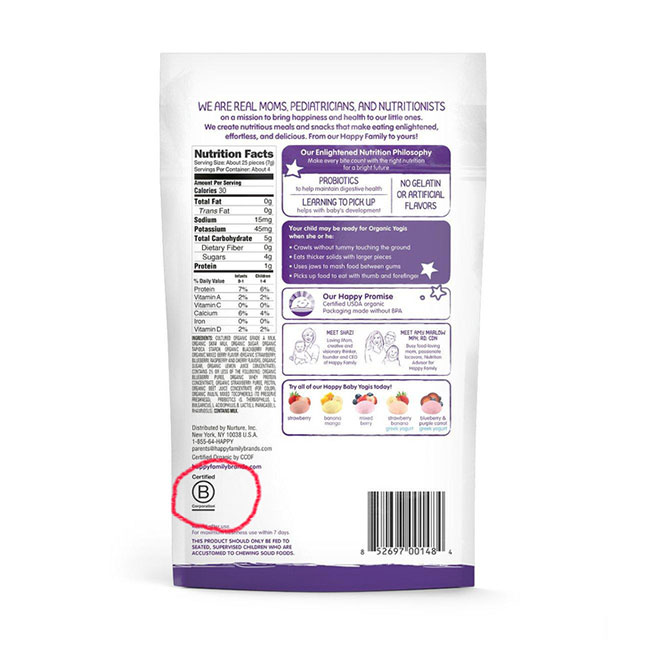Among the food products you purchase, you may notice some items with a B label, encircled discreetly on the packaging. What does this emblem signify?
The B label represents certification from B Lab, a global nonprofit organization that specializes in assessing the impact of for-profit businesses on their employees, the environment, and society.

Packaging of a candy labeled with B – (Photo: GO SUPPS).
Before granting certification, B Lab takes a comprehensive look at a company’s environmental practices and community engagement, thoroughly reviewing their commitments in areas such as citizen participation, employee satisfaction, climate impact, as well as diversity and equity.
B Lab was founded by a group of Stanford University alumni—Jay Coen Gilbert, Bart Houlahan, and Andrew Kassoy. The goal of B Lab is to help businesses have “the motivation for good.”
B Lab has been certifying B Corporations (often abbreviated as B Corps) since 2007.
Today, more food brands, beverage companies, and restaurants are undergoing rigorous evaluations to validate their commitment to the common good.
In an era where many companies are seeking to increase profits, independent audits by a third party like B Lab can be seen as a more reliable measure of a company’s impact on consumers.
According to B Lab, there are currently 6,180 brands across dozens of industries worldwide certified as B Corporations (including well-known progressive companies like Patagonia). Among them, over 700 brands or restaurants in the food and beverage sector are listed globally.
King Arthur Baking, One Village Coffee, and Numi Organic Tea were among the first food and beverage corporations to receive the B label in 2007.
In 2023, Mijenta Tequila became the first tequila brand to achieve B Corp certification, while Maker’s Mark became the largest distillery to attain this certification.
The B Impact Assessment continues to evolve, requiring companies to undergo periodic recertification to maintain their status. Max Hayes, the growth director at B Lab for the U.S. and Canada, stated: “Typically, every two years, our standards become increasingly stringent.”

















































